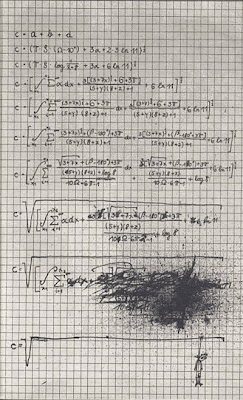Burden
Here is a continuation of what I started in the last post.
~
The book of Genesis outlines our beginning: an incredible story of creature and Creator, loved and Lover, a record of a now unfathomable relationship where God Himself walked in the cool of the afternoon in that beautiful garden with man. This is the picture of how God intended things: man hanging out with God in the garden, naming the animals and tending to the flowers and trees, enjoying God Himself and each other.
But God created man with his own free will, and out of that free will he rebelled against God, taking of the fruit of the forbidden tree. That disobedience cost man everything he had. The life he had received from God would come to an end. He was fired from his job, and his privilege to the garden was revoked. He inherited the shame that comes with sin and rebellion. This sin would eventually cost him his son Abel.
But the biggest heartache, the most tragic of all tragedies would be that of the loss in relationship between creature and Creator, loved and Lover, so much so that God omnipresent would call out to him, “Where are you?” [1] The break in relationship that occurred between God and man on that terrible day is what God has been seeking to restore ever since. To each individual that has sinned against Him he calls out—yes, He’s still calling out, “Where are you?” Jesus does the same thing in our text from Matthew 11: “Come to Me, all you who labor and are heavy laden, and I will give you rest.”
We should also make careful note of one of the other results:
Cursed is the ground for your sake;
In toil you shall eat of it
All the days of your life.
Both thorns and thistles it shall bring forth for you,
And you shall eat the herb of the field.
In the sweat of your face you shall eat bread
Till you return to the ground,
For out of it you were taken;
For dust you are,
And to dust you shall return.[2]
The restlessness we feel in our hearts is, no doubt, a result of the tearing of our hearts from His. We are separated from our Father…and I would venture to say that it should be no less frightening than a five-year-old being lost in a mall without his parents. But look at the rest of our curse. We’ve become beasts of burden, sweating and toiling in the noonday sun for our bread…until we get so old we die and return to the very earth we plow. Work, not rest, is our portion. We no longer enjoy tending a restful, peaceful garden where we need only turn our heads and God Himself is there, walking by the petunias and daisies. Instead we work an earth full of thorns and thistles, where some of us are not so sure God even exists.* It’s a pit in our stomachs and in our hearts…it’s the restlessness we feel from day to day—the toiling and separation.
©Bill Sines, 2007
[1] Genesis 3:9
[2] Genesis 3:17b, 18, 19
~
*I'm not talking about myself here! I love Jesus......



